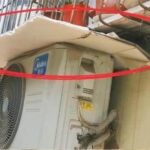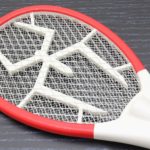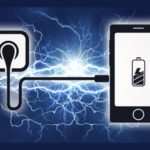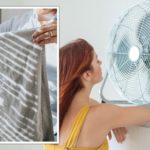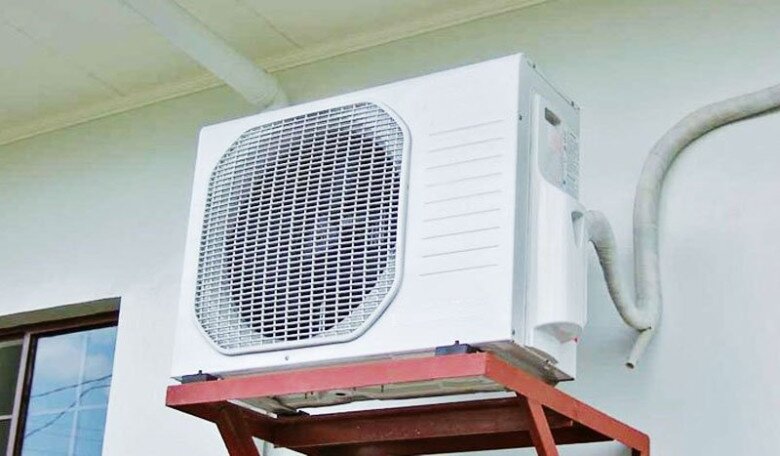
Man Dies From Electric Shock After Placing AC Condenser on Rooftop
A few days ago, a man from Thu Duc City, Ho Chi Minh City, died from an electric shock. The incident occurred when the man’s family placed the AC condenser directly on the rooftop floor, instead of raising it above the ground. As a result, the condenser was submerged in water and leaked electricity.
When the man went up to the roof to clear trash from a clogged water pipe, he accidentally came into contact with the electrified water and lost his life. This tragic event serves as a stark warning to many.
Best Practices for AC Condenser Placement
While it is correct to place the condenser in an open, well-ventilated area like a rooftop to ensure adequate airflow, it is crucial to avoid placing it directly on the floor. Instead, use a support frame or, at the very least, a few bricks to elevate the condenser. This simple precaution ensures safety in the event of electrical leaks and prolongs the lifespan of the unit.
Additionally, maintain a minimum distance of 10 cm between the condenser and the wall, with 0.25 m of clearance on either side. The wall opposite the condenser should be at least 60 cm away.
When installing the condenser on the rooftop, it is essential to provide reasonable shielding. Leaving it unprotected for extended periods can severely damage the internal components.
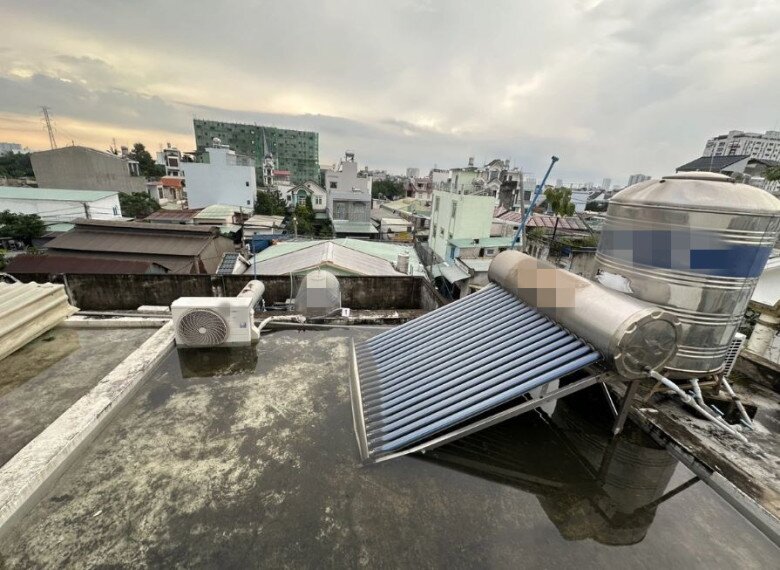
The image above shows an AC condenser submerged in water, which led to the man’s death due to electric shock. [Tuổi Trẻ]
Other Common Mistakes When Installing AC Condensers
1. Installing the Condenser Indoors
Some people opt to install the AC condenser indoors to protect the unit and improve its performance. However, this is a common mistake that can have detrimental effects. The primary function of the condenser is to expel hot air from the room to the outside environment. If placed indoors, the room’s air will become hotter, forcing the evaporator to work continuously to maintain a comfortable temperature.
Consequently, this setup not only increases electricity costs but also reduces the lifespan of the evaporator. Therefore, the condenser should always be installed outdoors.
2. Placing the Condenser Higher Than the Evaporator
When installing an air conditioner, positioning the condenser higher than the evaporator can lead to significant problems. If the condenser is higher, the gas inside is more likely to escape entirely, while the oil may be retained, potentially flowing back into the evaporator. This issue not only impacts the AC unit’s performance but can also cause damage to the system.
Therefore, experts advise against installing the condenser higher than the evaporator. If you insist on this arrangement, ensure you include an oil trap—a U-shaped or double U-shaped copper pipe—to prevent oil from flowing back into the evaporator.
Additionally, when installing the condenser, consider placing it in an easily accessible location to facilitate maintenance and cleaning. Also, avoid directing the fan’s airflow directly at the condenser coils with excessive force, as this will create resistance and waste electricity.
























